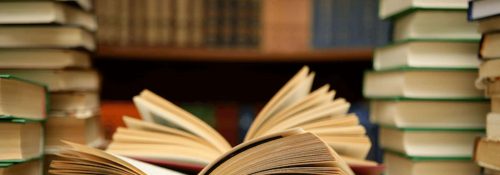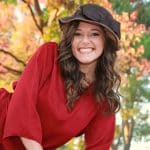
Heidegger, Pathways, and Phenomenology
Written by Jo Kroeker
I embarked on the wooded pathway of phenomenology the second semester of my freshman year when I took a four-hundred-level philosophy class on Maurice Merleau-Ponty, a twentieth-century continental French phenomenologist.
Dense foliage of complicated language, a whole new vocabulary, and a radically different system of viewing the world and our being in it turned my stroll into a rigorous hike—but I loved it. It was one of the most important turns of my academic year.
Phenomenology burst onto the continental philosophy scene with Edmund Husserl, whose famous charge is, “To the things themselves!” It asks what is by describing our experiences, consciousness, emotions, memory, and imagination, how we experience the world, and the things within it.
One year after this introduction to the subject, I took a class on Martin Heidegger—arguably the most influential philosopher of the twentieth century, but one we write off because his middle writings articulate fascist sympathies. He never publicly denounced them, and he seems easy to label a postmodern continental philosopher we shouldn’t take seriously.
Touring-academic Francesca Brencio overturned these assumptions sidelining the misunderstood philosopher in her weeklong lecture series this October. I felt reassured knowing that she too wrestled with how to contextualize his fascistic writings within the corpus of his work. I found she had academic courage to say studying a philosopher is not the same as accepting his ideology. She dared to engage the question rather than simply divorcing it from his other writings or discounting him completely.
Brencio saw him as a philosopher to study, not an ideologue to be afraid or dismissive of.
Her view, world-ed because she lives in the Black Forest where Heidegger once lived and worked and walked, brought him to life in her lectures. Faculty and students of all disciplines crowded classrooms for her talk on his life and work and her topical lectures on his Black Notebooks—the most damning evidence for his Nazism—his abandonment of metaphysical language and turn to poetry to illuminate the philosophical pathways, and his influence in psychiatric conceptualizations of the person.
Heidegger became just a man, again. An influential, smart, sensitive, anxious man who was worried about and committed to his task of recovering the question of the meaning of Being.
Brencio’s lecture series also showed the way in which his thought has tendrils in multiple disciplines: not just philosophy, but literature, psychology, sociology, and German. I was once told philosophy is the synthetic discipline that seeks to understand the whole and draws from fields as diverse as literature, sociology, music, and economics to do so. Brencio showed me how Heidegger does the same—how he tried to understand the whole of Being, the whole of the world.
When the metaphysical language failed, poetic language illumined his pathways. Did he ever find a clearing where the meaning of Being was clear? I couldn’t say. Brencio, who struck a dynamic balance between confidence and intellectual humility, answered the toughest questions at every turn and showed us how even a philosopher turns to other disciplines to articulate experience.
In fact, isn’t that what we are at Hillsdale College to do? The study of calculus, poetry, economics, sociology, music, theater, and biology certainly have the good of mastering the subject in itself, but each subject is just another pathway to understanding and articulating human experience.
Just as Heidegger saw poetry as a bridge over the gap in his metaphysical vocabulary, we too can use these seemingly disparate studies not as isolated paths, but as bridges that help us traverse ravines toward our understanding of meaning, Being, and truth.
 JoAnna Kroeker (but everyone calls her Jo), ’19, exchanged flip flops and eternal sunshine in Fresno, California, for snow-boots and school at Hillsdale, where she studies French and journalism. Former Opinions and current Features Editor of the Hillsdale Collegian, she gives thanks for the coffee and brown sugar Pop Tarts that make school and a weekly newspaper possible. When she’s not writing, she’s tutoring other writers or thinking about writing while doing yoga, baking, or reading.
JoAnna Kroeker (but everyone calls her Jo), ’19, exchanged flip flops and eternal sunshine in Fresno, California, for snow-boots and school at Hillsdale, where she studies French and journalism. Former Opinions and current Features Editor of the Hillsdale Collegian, she gives thanks for the coffee and brown sugar Pop Tarts that make school and a weekly newspaper possible. When she’s not writing, she’s tutoring other writers or thinking about writing while doing yoga, baking, or reading.